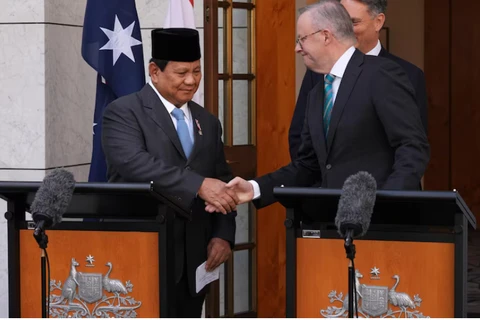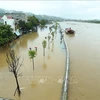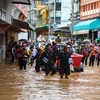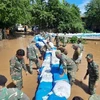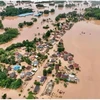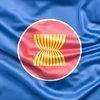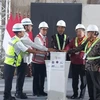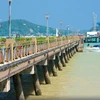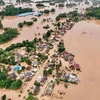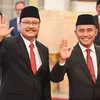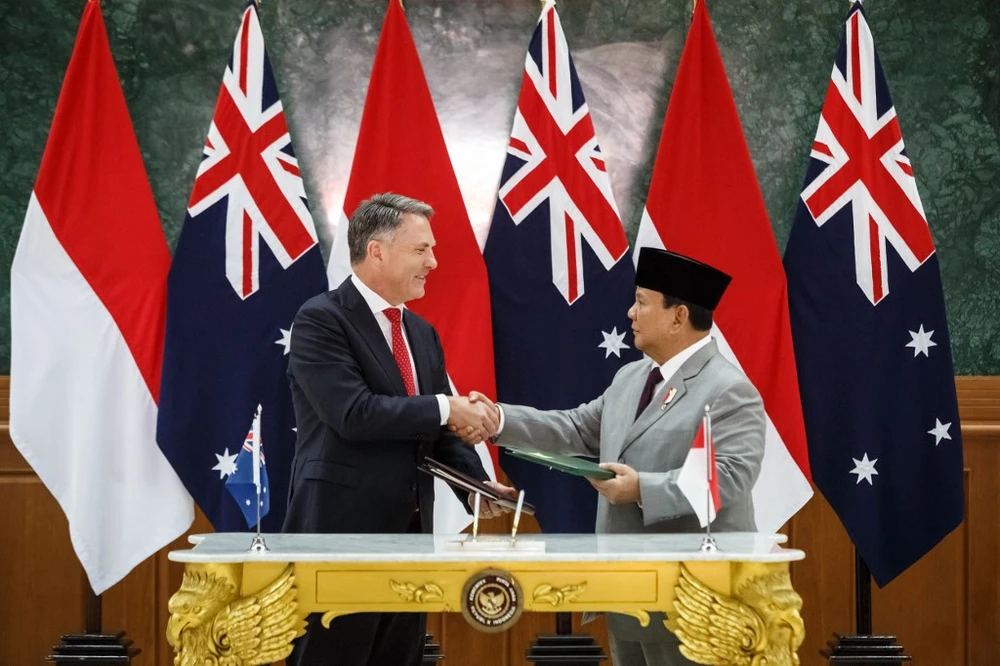
Hanoi (VNA) – Indonesia and Australia have signed a defence agreement, pledging closer cooperation to counter security threats in the Asia-Pacific region.
The pact was inked on August 29 within the framework of Australian Defence Minister Richard Marles' visit to Indonesia. It also includes provisions for joint drills and deployments to each country.
Speaking at a joint press conference with Marles, Indonesia's defence minister Prabowo Subianto described the Australia-Indonesia Defence Cooperation Agreement as a "historic milestone”.
"The deal aims to increase cooperation to help each other overcome various security threats and promote sustainable peace and stability in the Asia-Pacific region," he said, noting that the agreement is not a military pact or military alliance. Prabowo also said that he hoped to forge stronger ties with Australia in the future.
For his part, Marles said the pact is the most significant defence agreement between the two countries, hailing it as a "treaty-level agreement".
Australia and Indonesia will see a much greater interoperability between their defence forces, an ability to operate from each other's countries, he added.
The pact was first unveiled when president-elect Prabowo, who is set to succeed President Joko Widodo in October, visited Australia last week.
The two countries are due to hold a joint military exercise in East Java in November, involving almost 2,000 military personnel. The exercise, which will involve air, land, sea and cyber exercises, will be the biggest exercise that Australia has conducted abroad this year, Marles said./.

